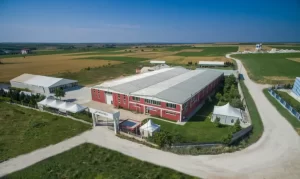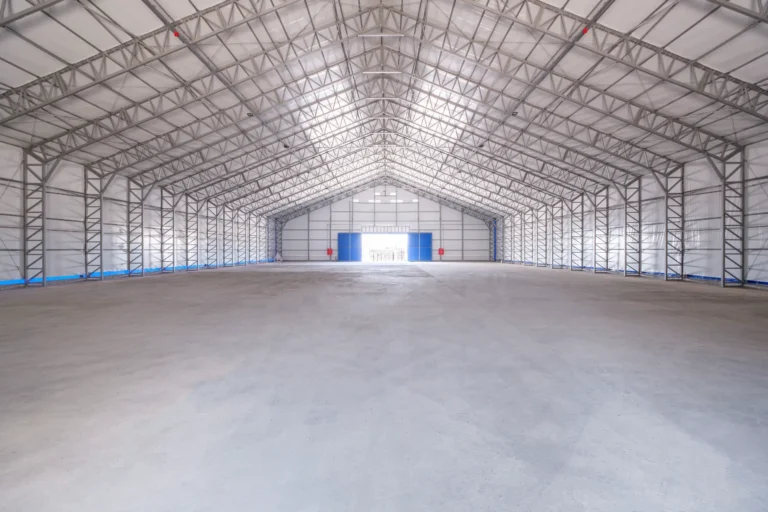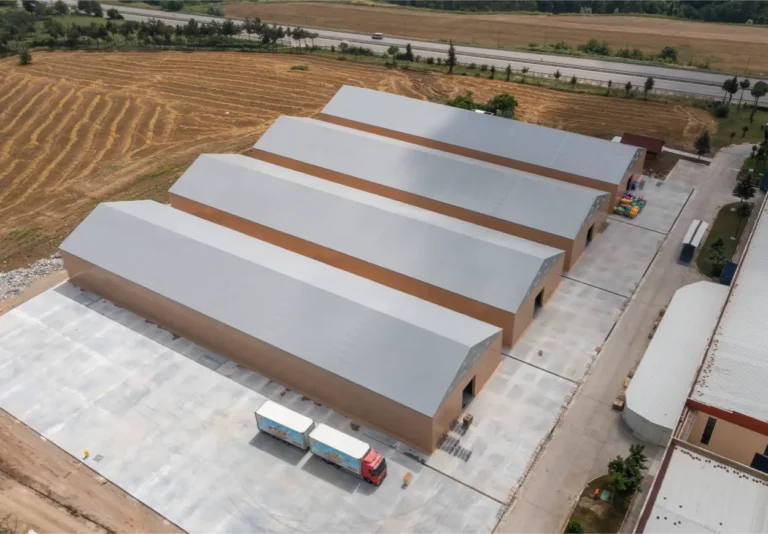Temporary Structures for Logistical Challenges
Unilever, a global consumer goods giant, faced the logistical challenge of storing a large number of ice cream refrigerators during the off-season. To protect their valuable assets and maintain operational efficiency, Unilever partnered with Basboga, a leading provider of temporary structures, to implement two large, custom-designed BlackBull structures. This case study details how these robust structures, equipped with strategically placed cargo doors, provided Unilever with a secure, accessible, and cost-effective solution for their seasonal storage needs.
The Challenge & Solution
The Challenge
Unilever is a multinational consumer goods company with a portfolio of iconic brands recognised worldwide. Their products span food, beverages, personal care, and home care, including globally popular ice cream brands like Ben & Jerry’s, Magnum, and Wall’s. Operating in nearly every country, Unilever is committed to sustainable practices and efficient operations across its vast supply chain.
Unilever faced a recurring logistical challenge: the need to store a significant number of ice cream refrigerators during the off-season. These valuable assets needed protection from the elements to ensure their longevity and functionality. Moreover, Unilever required a storage solution that allowed for efficient loading and unloading to minimise disruption when the ice cream season returned. Finding a cost-effective alternative to permanent construction or long-term external storage rentals was also a priority.
The Solution
To address their off-season storage needs, Unilever opted for two custom-designed BlackBull structures from Basboga. These structures provided the necessary size and durability to house the ice cream refrigerators. One structure measured 29m wide by 57m long, while the other was 29m wide by 66m long, offering ample space. Crucially, each structure was equipped with manually sliding cargo doors at both the front and back. This strategic placement of doors maximised accessibility, allowing for efficient loading and retrieval of the refrigerators from either end of the structure.
Conclusion
The Unilever case study exemplifies how Basboga’s BlackBull temporary structures can effectively address specific storage challenges faced by large corporations. By choosing this solution, Unilever successfully protected its valuable assets, optimised its operational efficiency, and likely achieved cost savings. The project highlights the importance of considering factors like accessibility and customisation when selecting a storage solution. It also underscores the value of temporary structures as a flexible and cost-effective alternative to permanent construction for seasonal or fluctuating storage needs. This case showcases Basboga’s ability to deliver tailored solutions that meet the unique requirements of even the largest and most demanding clients.


